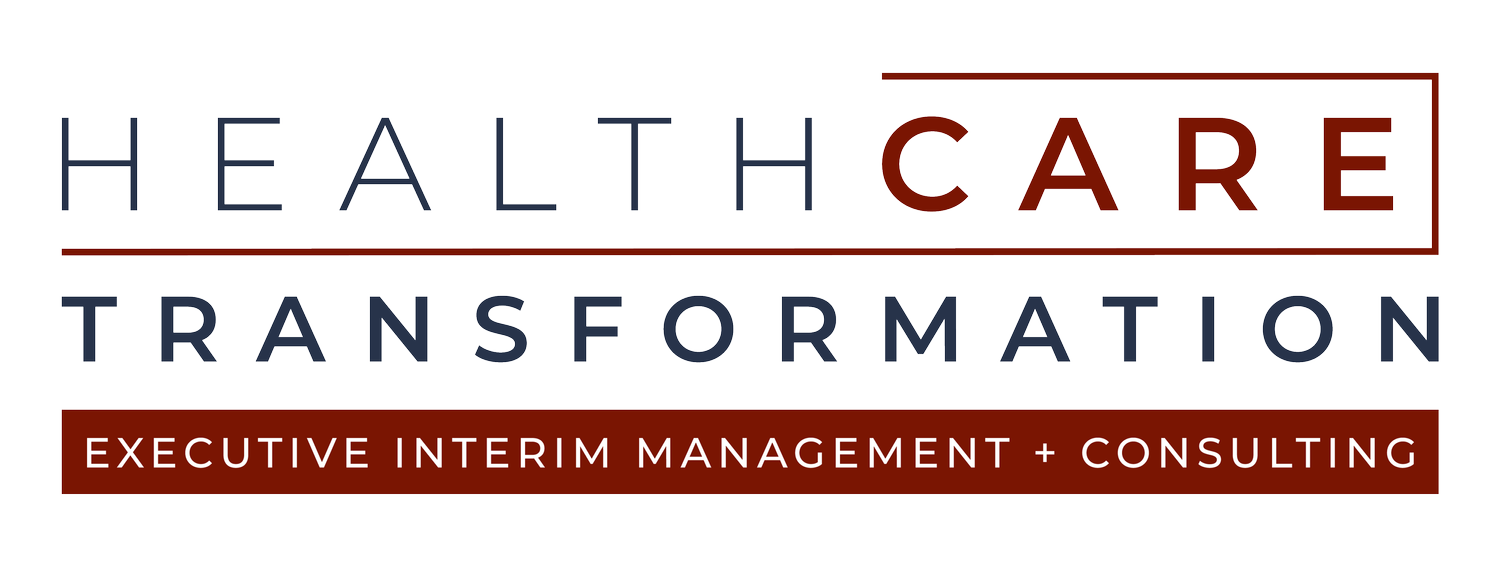How to Be a Better Leader in Healthcare: Key Traits and Strategies for Success
In healthcare, leadership is more than a title — it’s a responsibility. Effective healthcare leadership can mean the difference between high-performing teams and organizational strain; between exceptional patient outcomes and missed opportunities.
As the healthcare landscape continually evolves, today’s leaders are tasked with navigating complexity, building resilient teams and ensuring patient-centered care — while also being stewards of operational excellence.
This guide breaks down essential healthcare leadership qualities, strategies to grow as a leader and common pitfalls to avoid — all meant to help you lead with clarity, confidence and intention.
What Makes a Good Leader in Healthcare?
Leadership and healthcare are deeply intertwined. While clinical knowledge and technical expertise matter, great leaders go further — cultivating a culture of empathy, communication, adaptability and trust.
True leadership in healthcare involves:
Guiding teams through uncertainty
Inspiring collaboration across disciplines
Driving both care quality and organizational performance
Building relationships with patients, peers and stakeholders
Creating safe, inclusive environments for everyone involved
At the heart of all healthcare leadership skills is the ability to connect, support and evolve in a fast-paced, high-stakes industry.
Why Leadership is Important in Healthcare: The Role of Healthcare Leaders
The success of any healthcare organization relies heavily on its leadership team. Why is leadership important in healthcare? Because it shapes everything — from staff morale to patient satisfaction and safety.
Qualities of a high-impact healthcare leader extend beyond decision-making. Great leaders:
Foster inclusive, respectful workplaces
Model ethical, people-centered behavior
Support professional growth and team development
Promote a culture of accountability
Influence long-term patient outcomes and team culture
Strong healthcare leadership doesn’t stop at the hospital doors — it empowers care teams and nurtures the well-being of entire communities. As trusted pillars of society, hospitals rely on thoughtful leadership to uphold the confidence of those they care for.
Developing the Leadership Skills Healthcare Demands Today
Strong healthcare leadership doesn’t happen by chance. It’s the result of deliberate growth, self-awareness and continuous development. The most effective leaders in healthcare consistently cultivate a variety of core traits that help them lead at the highest levels.
Key healthcare leadership qualities include:
Empathy
Empathy builds connection. Leaders who understand the emotional and physical needs of both patients and staff foster a culture of compassion and care. In healthcare environments that are both stressful and vulnerable, empathy is especially important.
Clear Communication
One of the most critical healthcare leadership skills, strong communication ensures team alignment, reduces misunderstandings and promotes transparency — essential for both care quality and collaboration. Great communicators also create space for listening, feedback and learning.
Adaptability
The healthcare environment changes rapidly. From regulatory shifts to emerging technologies, staffing shortages and more, strong leaders stay agile, embrace change and remain open-minded to innovation.
Integrity
Integrity is the backbone of trust, and trust starts at the top. Leaders who demonstrate honesty, ethical behavior and accountability set the tone for the entire organization. This includes owning mistakes, maintaining confidentiality and acting in the best interests of patients and staff.
Vision
Great leaders don’t just manage and react — they lead with purpose. A clear vision aligns team goals with broader organizational objectives and helps teams understand the “why” behind the work they do every day.
Inclusiveness
Building diverse, equitable and inclusive environments enhances team culture and improves patient outcomes — a central pillar of modern leadership and healthcare.
Decisiveness
In high-stakes environments, delays in decision-making can impact care. Strong leaders balance consultation with the ability to make confident, timely choices.
Accountability
Great leaders own their responsibilities and hold others to clear expectations, reinforcing a culture of trust and performance.
Humility
Acknowledging limitations and listening to others fosters collaboration, growth and stronger outcomes for everyone involved.
Leadership Strategies for Healthcare Executives
Strong healthcare leadership blends vision, communication, accountability and a deep commitment to people — both patients and professionals. The following strategies translate key healthcare leadership qualities into tangible actions executives can implement to drive better outcomes across the board.
Setting the Standard by Leading by Example
Leaders who embody professionalism, integrity and respect inspire their teams to follow suit.
Strategies:
Demonstrate transparency in decision-making.
Recognize team members publicly and regularly.
Model a calm, steady presence in high-pressure situations.
Practice the values and ethics expected across the organization.
Foster a Collaborative Organizational Culture
Teamwork is critical in complex, ever-changing care environments. A collaborative culture strengthens innovation, morale and the quality of patient care.
Strategies:
Host interdepartmental huddles to encourage knowledge sharing.
Provide structured channels for cross-team input.
Establish clear shared goals for collaborative initiatives.
Celebrate team achievements, not just individual wins.
Put Patients at the Center
At the core of leadership and healthcare is one central truth: the patient comes first. Leaders must champion patient experience, safety and satisfaction in every aspect of care delivery.
Strategies:
Include patient experience metrics in leadership evaluations.
Train staff in empathy and active listening.
Design workflows around patient needs and feedback.
Build Communication-Driven Leadership
Among all healthcare leadership skills, communication stands out as foundational. Poor communication leads to confusion, errors and disengaged teams — while strong communication builds clear understanding, cohesion and trust.
Strategies:
Standardize communication tools and channels across departments.
Deliver timely updates on goals, challenges and successes.
Encourage two-way feedback with open-door policies.
Offer training or coaching for team communication skills.
Invest in Team Development
Empowered, growing teams create resilient, top-notch healthcare organizations. Team development tactics also support recruitment and retention efforts.
Strategies:
Offer mentorship programs and leadership pipelines.
Fund continuing education and specialty certifications.
Provide growth-focused performance reviews.
Create opportunities for cross-training and internal mobility.
Embrace Innovation and Change
Each day in the healthcare industry looks different. Today’s healthcare leaders must confidently lead their teams through disruption and transformation.
Strategies:
Pilot emerging technologies that improve care or efficiency.
Gather input during process redesigns or new initiatives.
Encourage feedback that sparks innovation.
Communicate the “why” behind changes to reduce resistance.
Prioritize Mental Health and Well-Being
Sustainable leadership starts with a culture that values wellness and balance. In a field that is notorious for burnout, leaders must place special emphasis on caring for the well-being of their people.
Strategies:
Understand the early signs of burnout.
Destigmatize mental health conversations.
Provide access to wellness resources and programs.
Lead by example in maintaining work-life boundaries.
Use Data to Drive Decisions
Data-informed leadership results in smarter strategies and stronger outcomes.
Strategies:
Monitor and share KPIs regularly.
Use outcome data to drive continuous improvement.
Align decisions with both clinical and financial benchmarks.
Train leaders and managers in data literacy.
What Poor Leadership Looks Like in Healthcare — and How to Avoid It
Just as good leadership uplifts, poor leadership can harm — leading to disgruntled employees, staff turnover and patient dissatisfaction. Poor leadership qualities in healthcare often include:
Ineffective or inconsistent communication
Resistance to change or innovation
Micromanagement and lack of autonomy
Failure to support or recognize staff
Disconnected or unclear decision-making
The effects of poor leadership ripple throughout an organization. Avoiding these pitfalls is crucial to maintaining a positive work environment and high standards of care.
Becoming a Better Healthcare Leader
In conclusion, leadership in healthcare is about more than managing people — it's about creating a culture that prioritizes patient care, fosters collaboration and promotes continuous improvement.
By embodying the healthcare leadership qualities that align with these objectives, you can become the type of effective and impactful leader that meets operational expectations and is uncompromising about caring for those you work with and serve.


